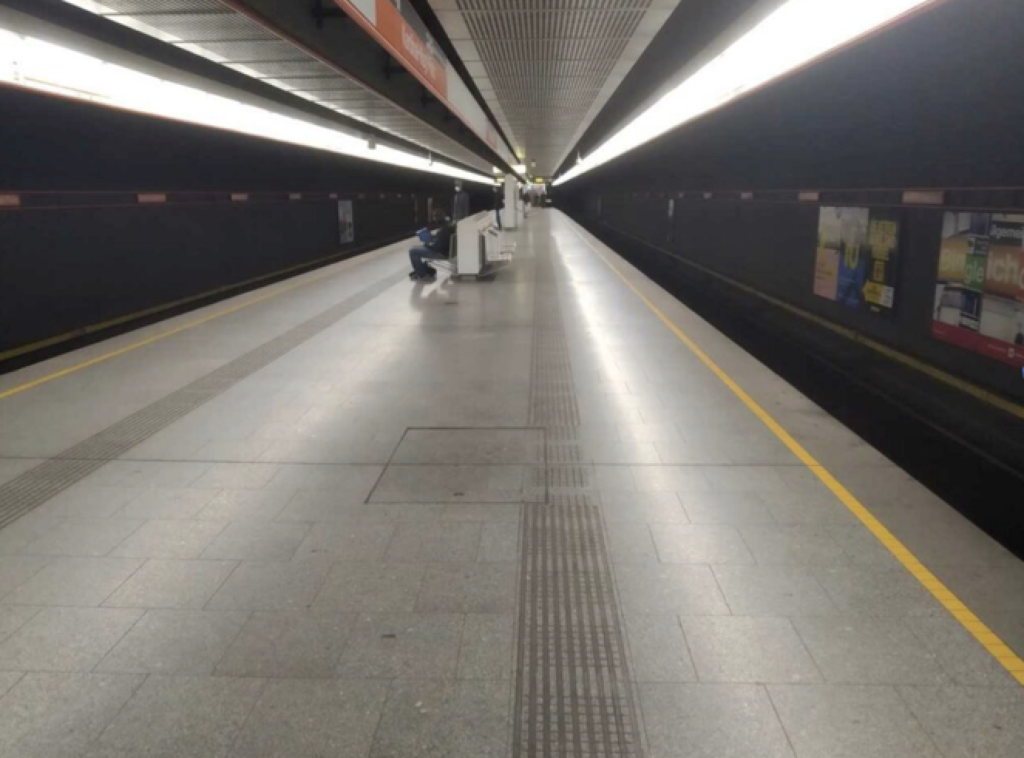-by Mimi Sheller, Drexel University, Philadelphia
As the
coronavirus sweeps around the world, outpacing public health efforts to contain
it, all human mobilities have been brought to an abrupt halt. People have
stopped going to work, children are kept home from school, many businesses have
closed their doors, airplanes have stopped flying, cruise ships are turned away
from ports, borders are closing, factories have stopped churning out products,
and the shipment of goods globally has vastly slowed. The governing regime of
mobilities has been thrown into sudden disarray, and with it the world economy.
Under these exigencies to de-mobilize our lives, we are forced to adopt new
routines, new habits, and new ways of stilling ourselves, our economies, and
our social interactions. Universities, of course, have also closed, and I write
this from home under orders of social distancing, while I prepare my Spring
term course for online teaching.
Additionally,
shortly on the heels of this global slow down there is also a mounting shift
towards new patterns and kinds of mobilities: we hear of evacuations of
travelers returning from abroad, essential workers getting to their jobs by
bike or walking, and university students moving out of their dormitories.
Governors are calling for surge capacity, mobilizing the National Guard, and
perhaps the military armed forces. Local communities are planning for drive-in
virus testing, online working, delivery services, and logistical processes to
re-fill grocery store shelves. We learn that if governments do not extend the
social safety net, at least here in the United States, we will soon see
evictions, homeless people roaming the streets, and further uncontrolled spread
of CoVid-19. Amid these unfamiliar mobilities we hear calls for social
solidarity, as much as social distancing.
Crucially,
there has also been a global slowdown of fossil fuel consumption, and a
collapsing price for oil. As transportation and production seize up, and
international travel shuts down, the demand for fossil fuel is plunging. If
airlines go bankrupt, if trucking is severely reduced, and consumers stop
buying new cars, will this actually kickstart the transition away from fossil
fuels? As countries seek to recover and pull out of this mobility shock, will
we seek to return to the high-mobility, high-energy, high-carbon economy of the
past? Or will we begin the urgently needed shift to a low-carbon economy, one
premised on more resilient, regenerative, and circular forms of local exchange?
Could this be the push we needed to truly implement the low-carbon transition
that scientists have warned us is necessary to stop the global climate
emergency?
While some
might see this as the wrong time to worry about climate change — in the midst
of a viral emergency that needs immediate response — for others these two things
are connected. While it may not be clear yet whether climate change has
facilitated the jump of new coronavirus from wildlife to humans, certainly
scientists have been predicting increasing risks of pandemics. Even more to the
point, though, our response to CoVid-19 may share crucial elements with our
needed response to climate change. Both problems remind us that the world is
interconnected, and we cannot wall ourselves off. And while some societies
might veer towards authoritarian and military responses, demonizing outsiders
and rallying nationalism, others are recognizing the need for international
cooperation, mutual solidarity, and shared resources and knowledge.
Above all,
though, it is becoming clearer that the response to both coronavirus and climate
change share common elements. Proponents of the Green New Deal in the United
States, or the Green Deal in Europe, have been calling for a massive
transformation of our energy infrastructure, housing, and transportation
systems through public investment in renewable energy, energy efficiency, and
low-carbon transportation. These proposals are exactly the kind of government
stimulus that could also help pull our economies out of the current slump, and
build more resilient communities with greater social solidarity.
So, while we are still in the midst of the immediate emergency response, it is also worthwhile to begin to envision and plan for our recovery and rebuilding process. Mobilities theory is crucial to this planning because we have been focusing for the last fifteen years on the problem of low-carbon transitions and understanding how everyday social practices are embedded in complex systemic change. Changing the ways that we do mobilities will be crucial to the post-CoVid-19 world. And making sure we do so in a socially equitable and just way will be crucial to the future of the world.
